Yarl's Wood protest: Campaigners urge closure as inmates reveal reality of living behind bars
Emily Goddard speaks to women being held inside the immigration detention centre, who compare it to a concentration camp and Guantanamo Bay
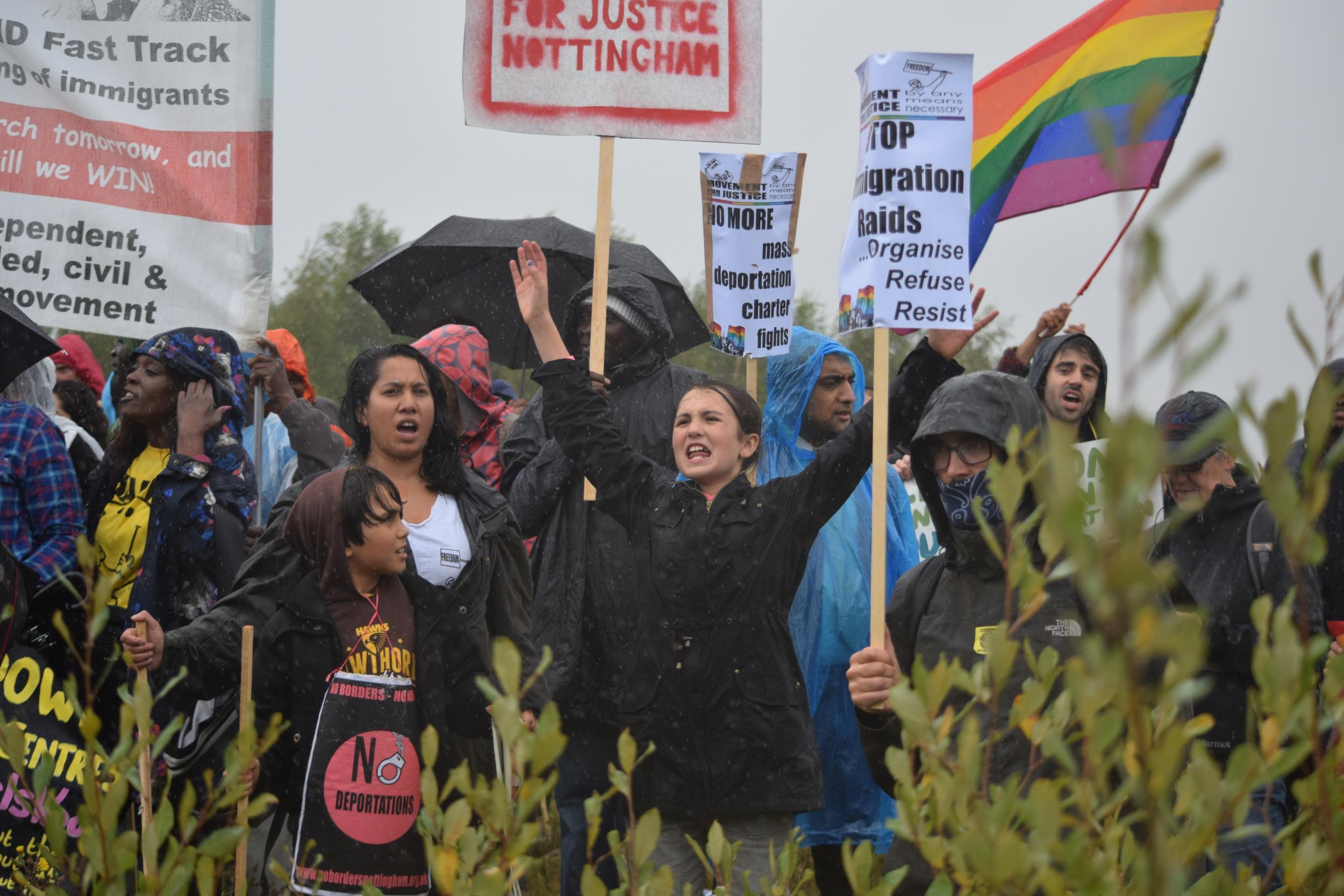
Your support helps us to tell the story
From reproductive rights to climate change to Big Tech, The Independent is on the ground when the story is developing. Whether it's investigating the financials of Elon Musk's pro-Trump PAC or producing our latest documentary, 'The A Word', which shines a light on the American women fighting for reproductive rights, we know how important it is to parse out the facts from the messaging.
At such a critical moment in US history, we need reporters on the ground. Your donation allows us to keep sending journalists to speak to both sides of the story.
The Independent is trusted by Americans across the entire political spectrum. And unlike many other quality news outlets, we choose not to lock Americans out of our reporting and analysis with paywalls. We believe quality journalism should be available to everyone, paid for by those who can afford it.
Your support makes all the difference.The bright banners, the wild vigour and the choral chanting being paraded here in a small North Bedfordshire village today would almost have you believe this is the site of a carnival. However, the motive behind this spirited display is far sterner, as hundreds of protestors have travelled the country to gather outside the Yarl's Wood Immigration Removal Centre and push for its closure.
Activists are angrily kicking the high, metal fence circling the controversial facility, where some 400 foreign nationals – predominantly women – are being held indefinitely awaiting immigration clearance or deportation. Surveillance cameras watch as some of the detainees do their best to join the protest by calling out of the windows and waving homemade banners.
This latest demonstration, organised by campaign group Movement for Justice, follows eight previous events protesting against British immigration rules.
A Home Office spokesperson said: “We respect everyone's right to peaceful protest but we are clear that detention and removal are essential elements of an effective immigration system. Those with no right to be in the UK should return to their home country.
“We will help those who wish to leave voluntarily but when they refuse to do so, we will take steps to enforce their removal. All decisions to detain are taken on the individual merits of each case and for the shortest period necessary.”
Yet while flowers and rainbow placards are being strung up on the gates outside, inside the reality of life at the notorious and secretive centre is much bleaker. One detainee tells The Independent she cannot believe she is in the developed world as the culture of barbaric cruelty and racial prejudice allegedly taking place at the centre is akin to what made her flee her home country of Ghana in the first place.
“You’d think you’re in a third world country,” says 44-year-old Sylvia*, who has been in Yarl’s Wood for one year and two months. “This place is like Guantanamo Bay. It’s a concentration camp. They don’t let you finish your shower. The men video you. This is happening in the first world, here in England, under the noses of all the politicians who talk about freedom and human rights.”
Coming to the UK in 2004 on a visitor's visa, Sylvia fled Ghana to escape the abuse and torture she was subjected to for being bisexual. She was later able to work here and was employed as a healthcare assistant in Bristol, but was then arrested in June 2014 for overstaying. She was jailed for six months.
It was after the completion of this sentence that she was taken to Yarl’s Wood. She says she was scammed by a false lawyer, who promised he had secured her British citizenship, but she remains in limbo, with her case pending – much to the detriment of her deteriorating mental health.
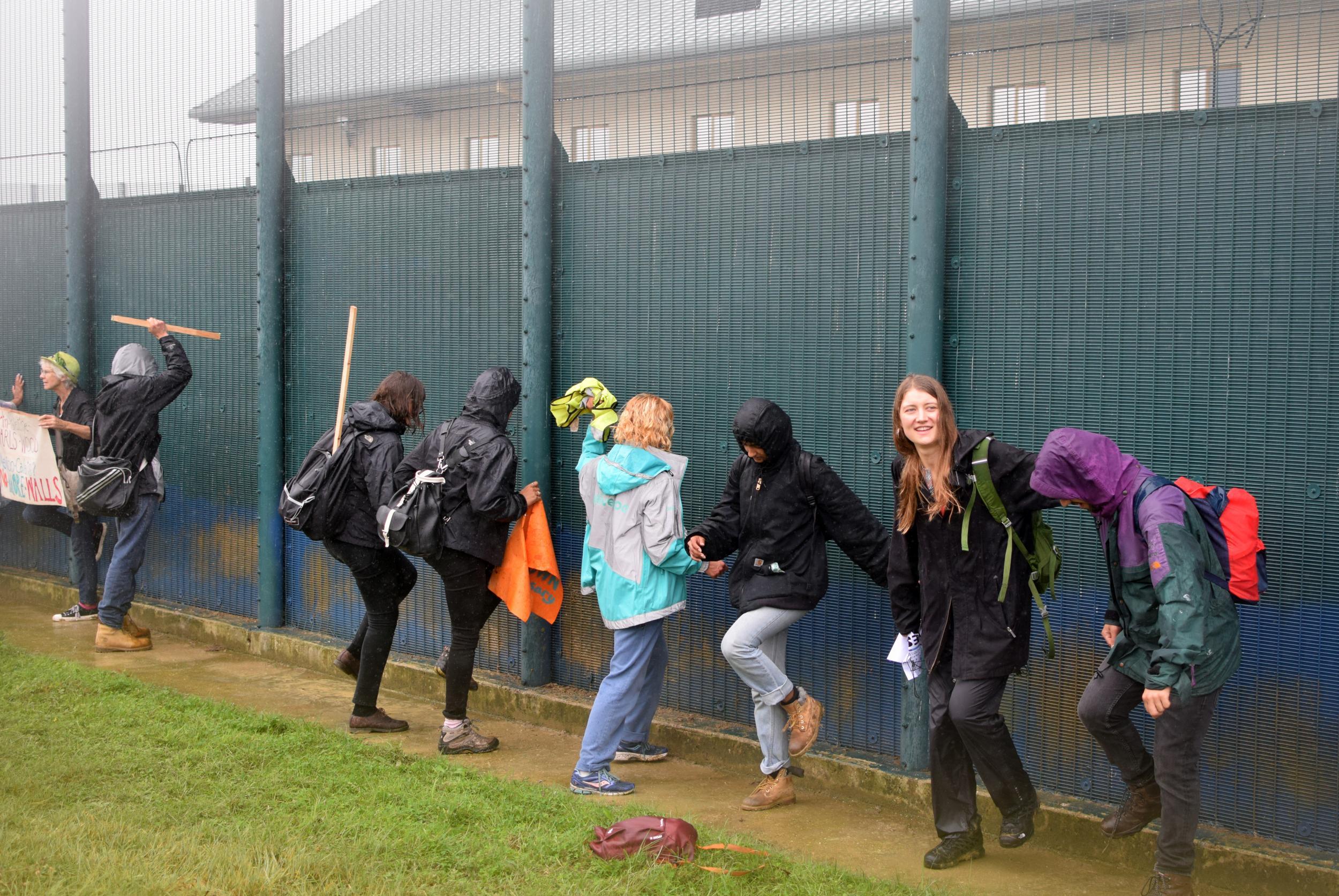
“I’m so depressed I have even taken an overdose,” she explains. “I am being kept in a cage. Sometimes I go three, four, five days without sleeping and I feel like killing myself. I’m on suicide watch but instead of them taking care of me, you get punished when you are sick because you are giving them more work.”
She says Yarl’s Wood does not take her mental illness seriously and they insist there is nothing wrong with her.
Sylvia says she has also been subjected to harassment and random searches of her room and the guards have taken away essential items, including sanitary towels, shower gel and creams that she needs to treat her eczema.
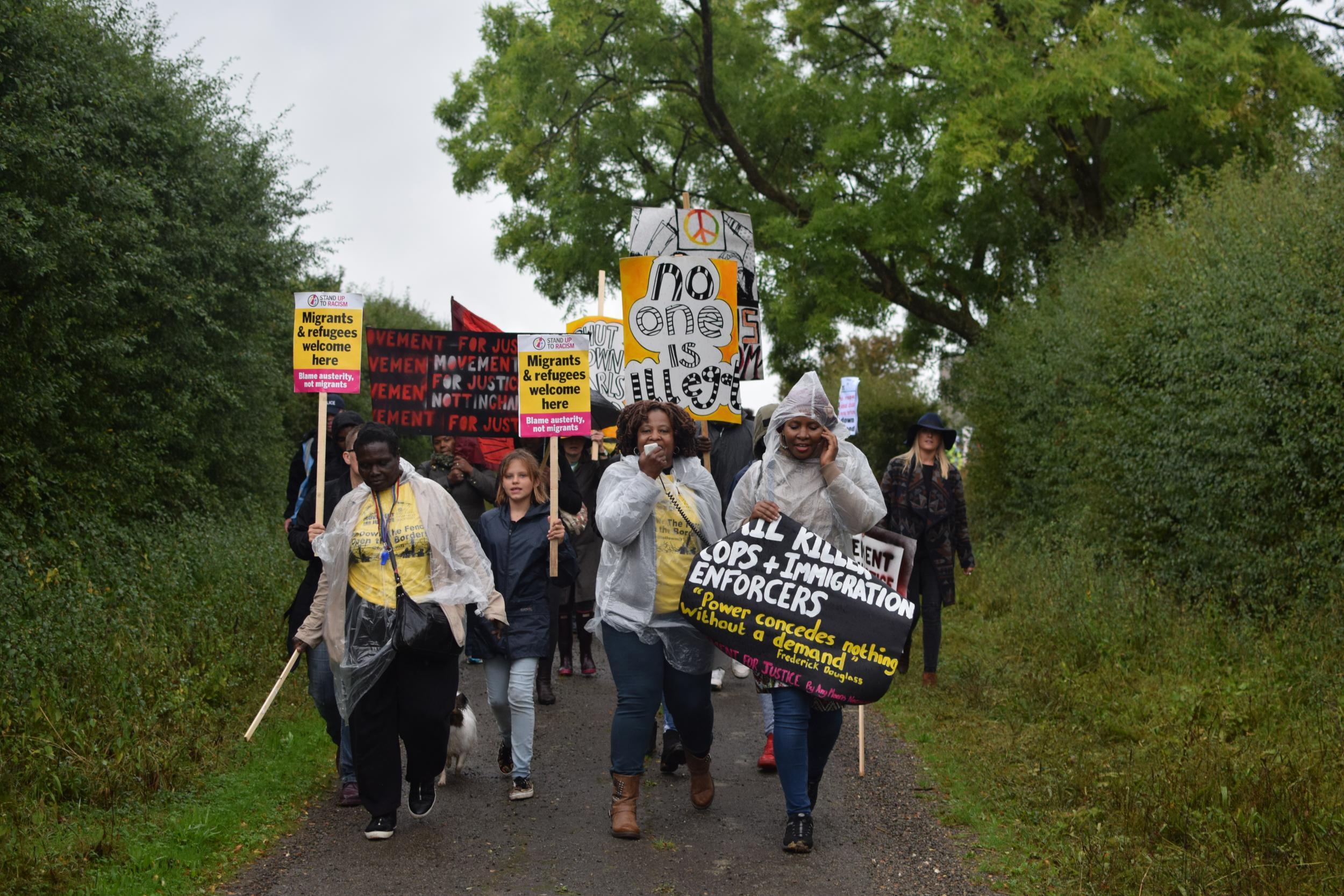
“If I had killed somebody I would know when my sentence would end, but here I don’t,” she adds.
Sylvia is by no means the first woman to make such damning allegations against staff at Yarl’s Wood. Since opening its doors in November 2001, the Serco-operated facility has been beset by a catalogue of accusations, including a number surrounding serious sexual abuse by staff.
Serco, which is paid £8.8m a year to run Yarl’s Wood, and the Home Office have faced repeated criticism about conditions at the troubled centre and there have already been five independent reviews into its practices to date.
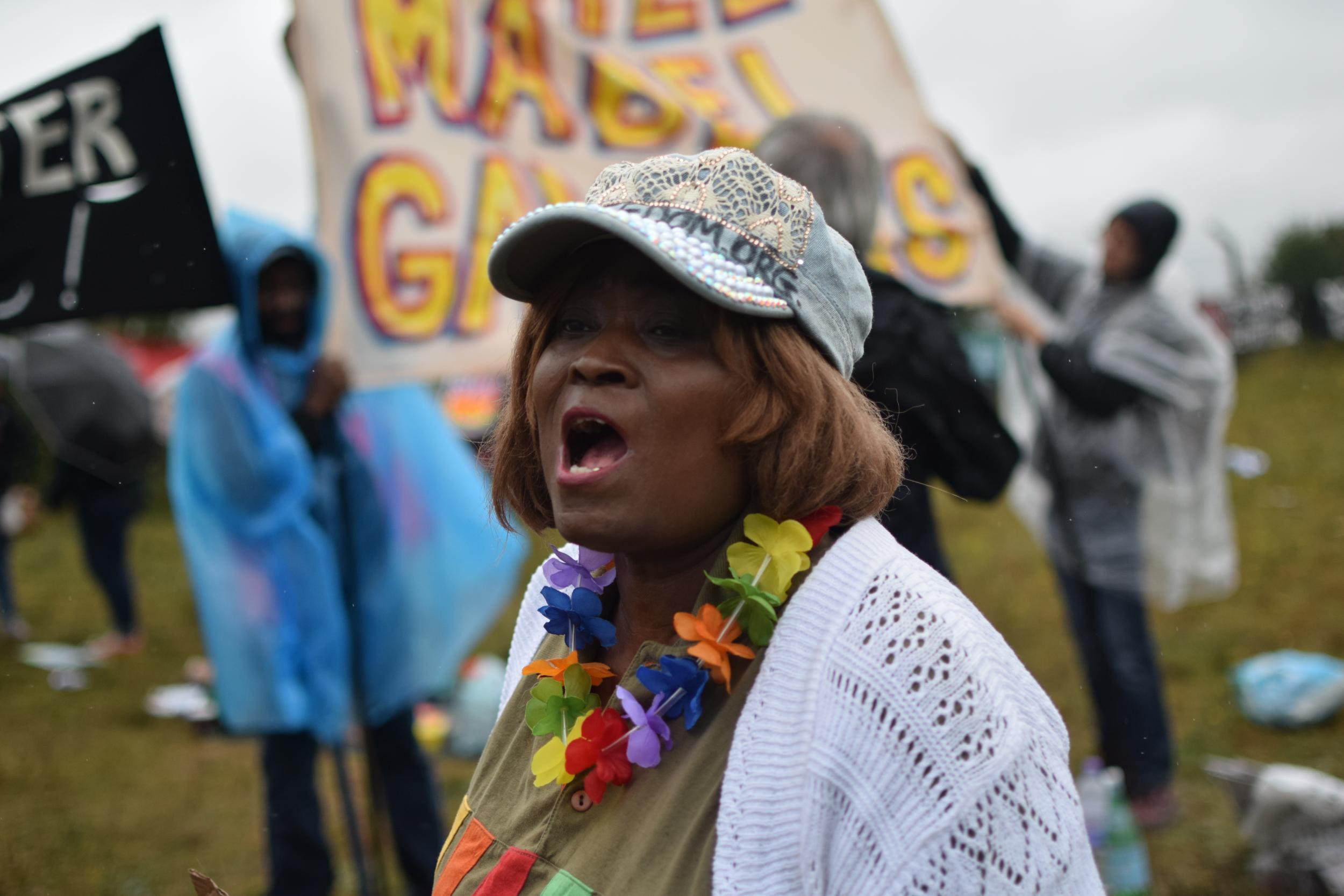
An independent investigation, commissioned by Serco earlier this year, rejected claims of an endemic culture of abuse or incidents of inappropriate behaviour by staff, and only found serious concerns over staffing arrangements.
“The independent report by Kate Lampard CBE, published earlier this year, concluded that there is no culture of abuse at the Yarl’s Wood,” Marcus De Ville, group head of media relations at Serco Group, says. “The NAO report published this summer also recognises that there has been significant progress made at the centre.
”We understand and appreciate the vulnerability of the people in our care and the legitimate concerns that many people and organisations have about them. We will continue to work to ensure that the residents are well looked after at this difficult time in their lives.”
“We take the safety and respect of the residents at Yarl’s Wood extremely seriously and there are multiple complaints systems that ensure that any allegations are fully and independently investigated.”
Responding to the claim that detainees are being filmed, he says the staff body cameras and CCTV are there to accurately record any incidents that do occur, for the benefit of both residents and staff.
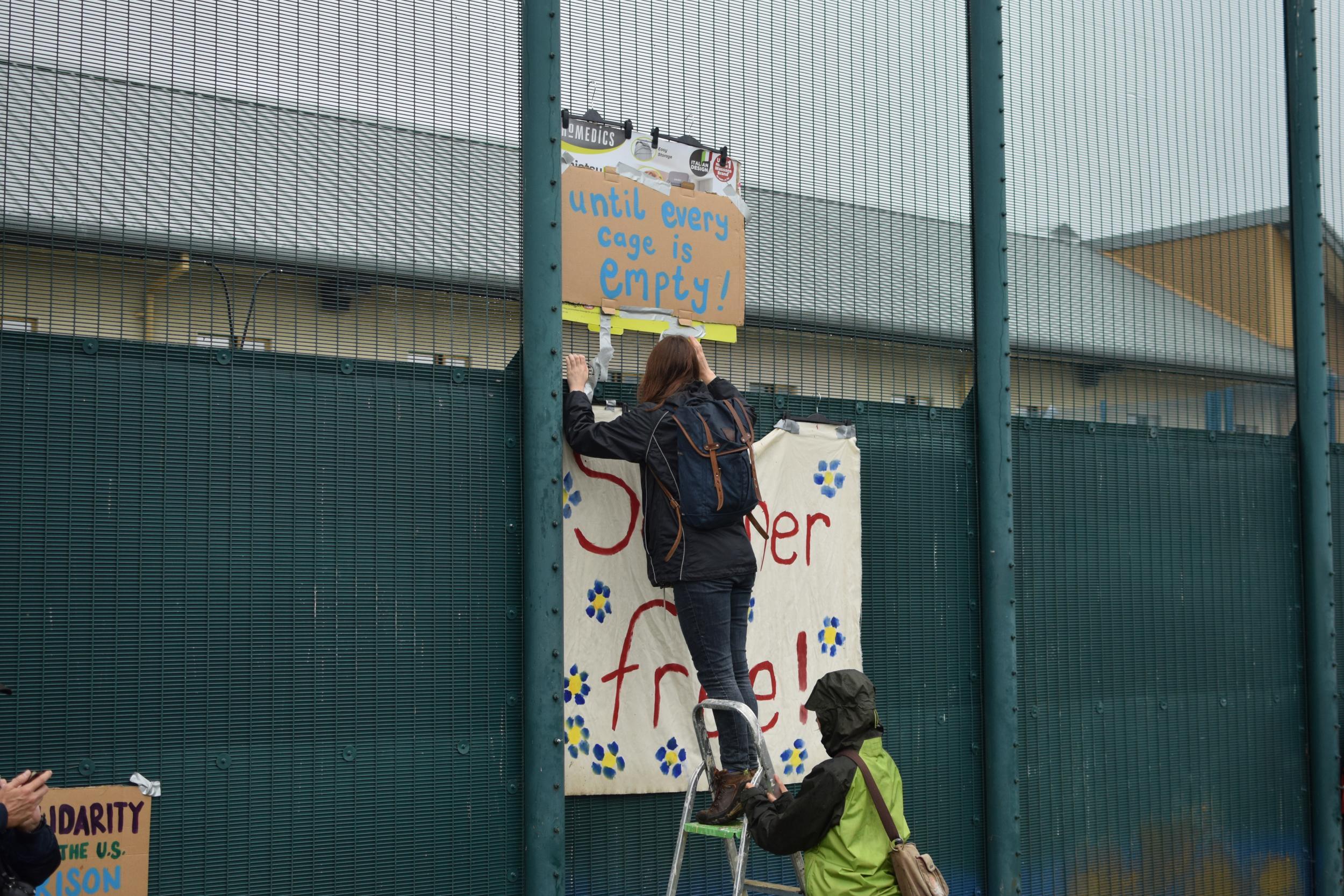
After its most recent report on the facility in July this year, National Audit Office head Amyas Morse said the services for the vulnerable people at Yarl's Wood were not delivered right first time as they should have been.
The detainees at Yarl’s Wood are indeed often vulnerable, and many of them felt they had no choice but to come to the UK to escape traumatic events and severe threat of danger in their home nations.
The youngest women currently at the centre are just 19 years old and found themselves here following life-shattering childhood incidents. Lucinda* travelled from Uganda with her brother when she was just 14 after both their parents died. She had been sexually abused at home as a child and went through the UK care system before entering Yarl’s Wood. Meanwhile, Anna*, also from Uganda, fled the country after facing numerous attacks for being a lesbian.
Both young women still believe a better life is to come for them, with dreams of studying at university and careers in paediatric nursing and project management, respectively.
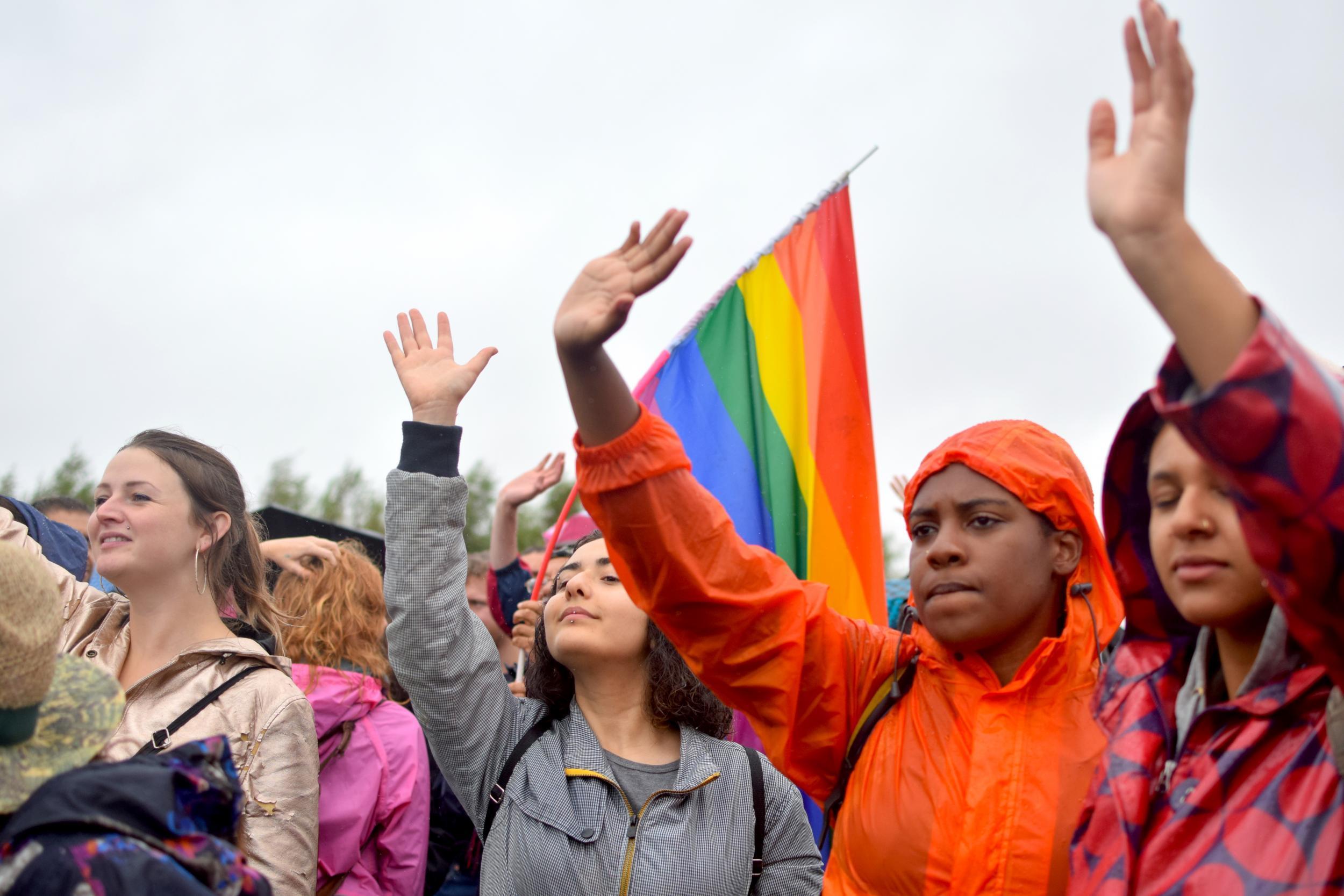
Despite her battle, Sylvia too is hopeful of starting a new life outside of Yarl’s Wood.
“They want me to give up, but I’m not going to give up,” she says. “Being here and enduring all these things makes me stronger. We are not criminals, even though they lock us up and take away our liberty. Each and every person has their own story and experience of this place. They pretend nothing is happening, but it is. It’s my life and if I come out I don’t think I’ll be scared of anything as I’ve seen it all here.”
*names changed to protect identities
Join our commenting forum
Join thought-provoking conversations, follow other Independent readers and see their replies
Comments